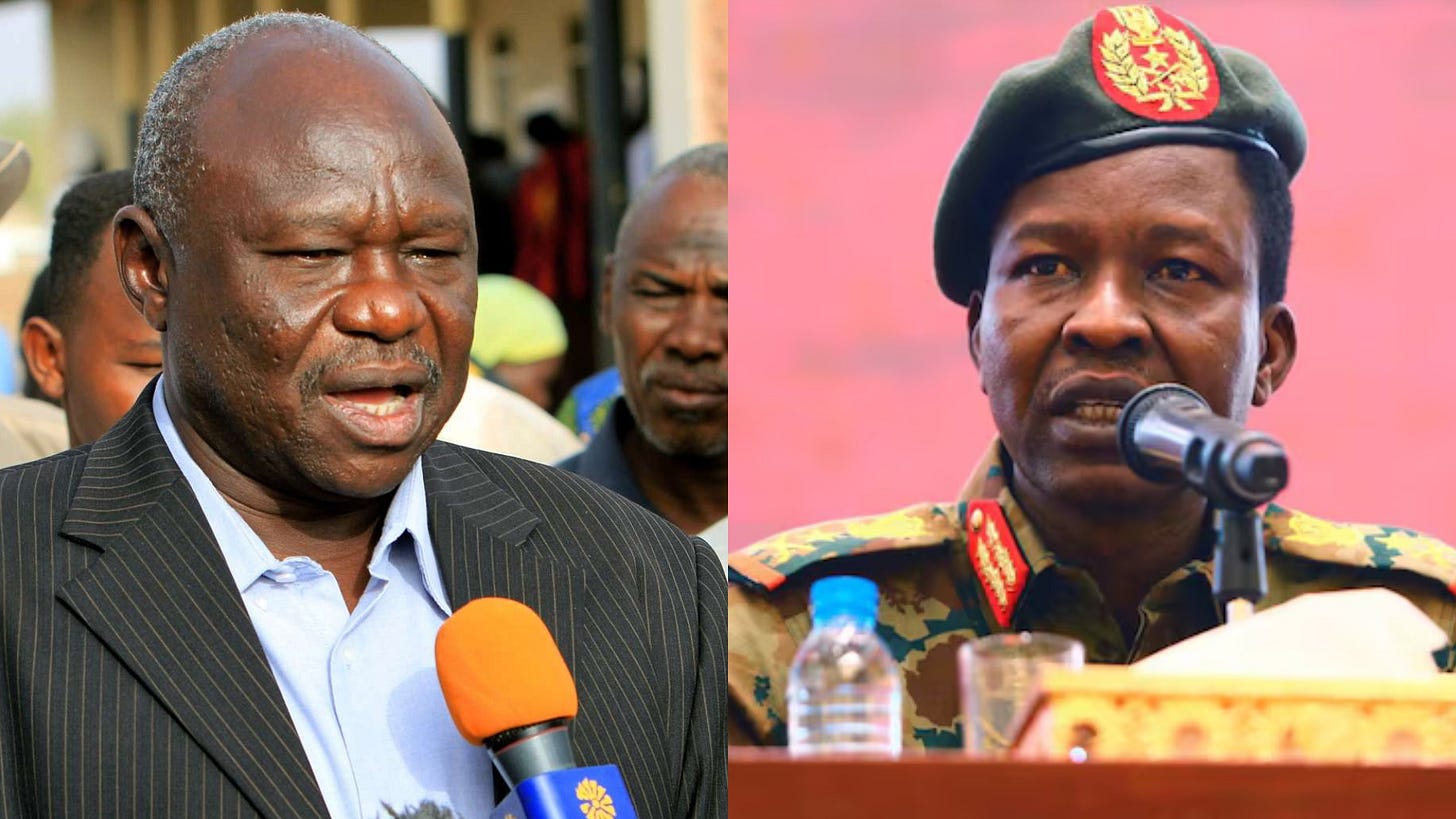Humanitarian talks between SAF and SPLM-North collapse
SPLM-North seeks wider access, including in RSF-held areas
Efforts to improve humanitarian access in Sudan's war-torn regions stalled after the rebel Sudan People's Liberation Movement-North (SPLM-North) insisted on including the paramilitary Rapid Support Forces (RSF) in the negotiations, a move that angered the Sudanese Armed Forces (SAF), forcing mediators to call off talks.
South Sudanese officials, acting as mediators, reported that the SAF submitted a ceasefire proposal on Friday to the SPLM-North over the weekend. This ceasefire would allow for the safe delivery of humanitarian aid via land and air routes to conflict-affected areas in South and West Kordofan states and the Blue Nile region.
The SPLM-North presented a counterproposal for unrestricted aid access across all of Sudan, including RSF-controlled areas in Darfur, central, and eastern Sudan. However, South Sudanese officials noted that the SPLM-North did not submit this proposal in writing. Additionally, the SPLM-North preferred an unwritten commitment to humanitarian access, which contrasted with the SAF's proposal requiring a formal written agreement.
The SAF viewed the lack of a written proposal from the SPLM-North as a disregard for their own proposal and vehemently rejected this proposal. SAF also expressed concerns that aid delivered to RSF-controlled areas would ultimately benefit the paramilitary group and its allied militias, which the government has described as “a terrorist militia”.
Following the breakdown in talks, Sudanese Defense Minister Yassin Ibrahim blamed the SPLM-North for the impasse.
“The SPLM-North's insistence on involving the RSF militia in the negotiations demonstrates their alignment with their well-documented human rights violations against the Sudanese people. Furthermore, their refusal to sign any agreement on humanitarian aid delivery undermines established protocols for securing safe passage in conflict zones, especially for aid provided by international donors.”
In their statement, the SPLM-North confirmed their demand to include all parties, including the RSF, in the negotiations. However, they offered a counter-narrative for the failed talks. According to the rebel group, the SAF aimed to establish an air bridge to potentially deliver reinforcements and supplies to besieged government forces in Kadugli, Babunusa, and Abu Jubeiha. This statement did not state whether the proposal was submitted in writing.
“The government delegation's proposal involves an air bridge to deliver what it believes to be aid to the headquarters of the 14th Division in Kadugli, the 22nd Division in Babunusa, and the 10th Division in Abu Jubeiha. We presented three proposals. The first proposal stipulates the delivery of humanitarian aid without a formal agreement. The second proposal calls for each party to separately sign an agreement with UN agencies under the supervision of the South Sudan mediation. Our third proposal calls for including all warring parties and signing a declaration to cease hostilities so that no party hinders the delivery of humanitarian aid to those in need. However, the government delegation rejected all our proposals.”
The SPLM-North reiterated their commitment to delivering humanitarian aid across Sudan without bias, and through established UN channels instead. They called for an immediate ceasefire agreement to facilitate the UN's mission and ensure freedom of movement for all Sudanese people.
SAF bases are facing a heightened risk of falling to RSF forces due to encirclement in several areas. The 22nd Division in Babunusa, for example, has been in a tense standoff with RSF forces since the beginning of the war, with dwindling supplies raising concerns about the division's ability to hold its position. Additionally, roads leading to SAF-held Kadugli, the capital of South Kordofan state, are blocked by either SPLM-North or RSF forces.
To address these supply constraints, the SAF has resorted to unreliable airdrops for its forces in Babunusa and El Fasher, North Darfur. El Fasher is currently the only Darfur state capital where the SAF maintains a presence, as the RSF has taken control of the remaining four Darfur state capitals.
Despite clashing with both the SAF and RSF on occasion, the SPLM-North maintains a neutral stance in the conflict. A ceasefire with the SAF could have indirectly benefited the Sudanese government. Reopening critical supply routes currently disrupted by the SPLM-North would enable the SAF to reinforce their troops and potentially redeploy forces to address the escalating fighting with the RSF.
A significant development towards a potential deal between the two parties was a meeting between SPLM-North leader al-Hilu and the SAF's deputy commander-in-chief, Shams al-Din Kabbashi, in Juba on May 6. This meeting marked their initial commitment for aid delivery.
While the SPLM-North denied reports of a similar meeting held in Asmara last year, the Juba meeting marked the first publicly acknowledged direct talks between the Sudanese military leadership and the SPLM-North. The SPLM-North is not a signatory to the 2020 Juba Peace Agreement, which was signed with rebel groups following the fall of Islamist dictator Omar al-Bashir.
SPLM-North has close ties with the government of South Sudan, where the ruling party is known as the Sudan People’s Liberation Movement (SPLM). The SPLM-North was part of the same rebellion (1983-2005) that led to the creation of South Sudan under the terms of a 2005 peace agreement, but SPLM-North fighters were left on the north side of the north-south boundary line, leading to a split with the separatist SPLM faction based in Juba, capital of South Sudan.
Fighting in the Nuba Mountains, controlled by SPLM-North, died down during the transitional period of 2005-2011 before resuming when South Sudan won its final status of independence in 2011. SPLM-North is secular, unlike Sudan’s long-time Islamist military dictatorship, and the Nuba Mountains is home to a substantial Christian minority.


